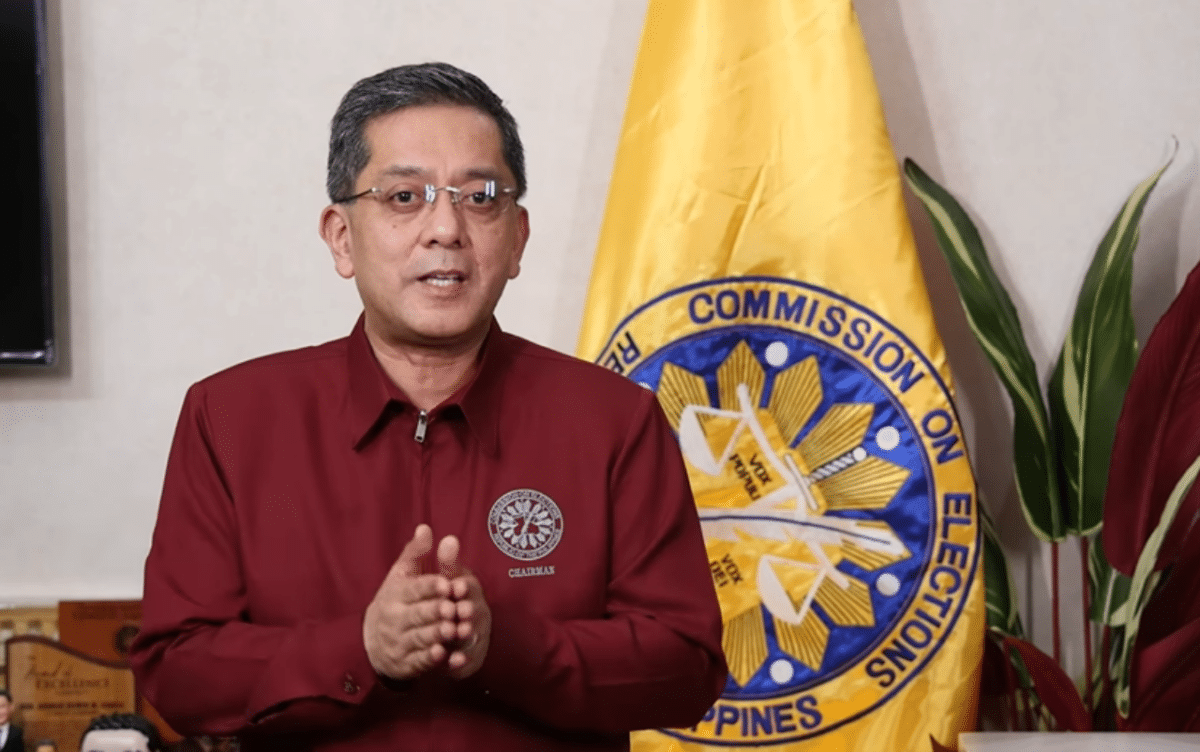Comelec: Opposition to overseas internet voting expected

Commission on Elections Chairman Atty. George Erwin Garcia (Screengrabbed from COMELEC)
MANILA, Philippines — The Commission on Elections (Comelec) is already anticipating that the Supreme Court (SC) will question the first-ever conduct of internet voting for overseas registered voters.
Comelec Chairman George Erwin Garcia made this remark Thursday after the Partido ng Demokratikong Pilipino–Lakas ng Bayan (PDP-Laban) filed a petition earlier to seek the SC’s temporary restraining order (TRO) to nullify the Comelec resolution that greenlighted internet voting.
“Actually, we have been expecting for the past two years that someone would file in the Supreme Court about the Comelec’s conduct of internet voting,” Garcia said in an ambush interview at Palacio del Gobernador.
“We were expecting that, hoping that someone would question it so that we could know if what we’re doing is right and the high court could give us guidance,” he continued.
READ: PDP-Laban seeks to block Comelec resolutions before SC
Petitioners from PDP-Laban argue that using digital ballots is not authorized by existing laws, adding that “Comelec cannot be allowed to introduce this new system through mere administrative issuances only.”
Garcia stressed, however, that the Overseas Absentee Voting Act allows internet voting as it authorizes the Comelec to “explore other modes or systems using [an] automated election system.”
Meanwhile, without the SC’s TRO, Garcia said their preparations for internet voting remain in full swing.
Of the 90 Philippine diplomatic posts abroad, 77 will participate in the first-ever online voting and counting system (OVCS), while the remaining 16 will use automatic counting machines (ACMs).
“As of now, the Comelec will proceed with internet voting in 77 posts abroad,” Garcia said.
The Comelec opened the online voting and counting system (OVCS) enrollment for the upcoming midterm polls from March 20 to May 7.
Around 19,000 voters pre-enrolled for the OVCS as of Wednesday, according to Garcia.
Should the SC release a TRO suspending the conduct of internet voting, Garcia said they have standby ACMs, while ballots could quickly be produced for those affected.
The 30-day overseas online voting period will be from April 13, 2025, to May 12, 2025, at 7 p.m. (Philippine Standard Time).
For the May 12 elections, they can only vote for national candidates, senators, and one party-list group.


















